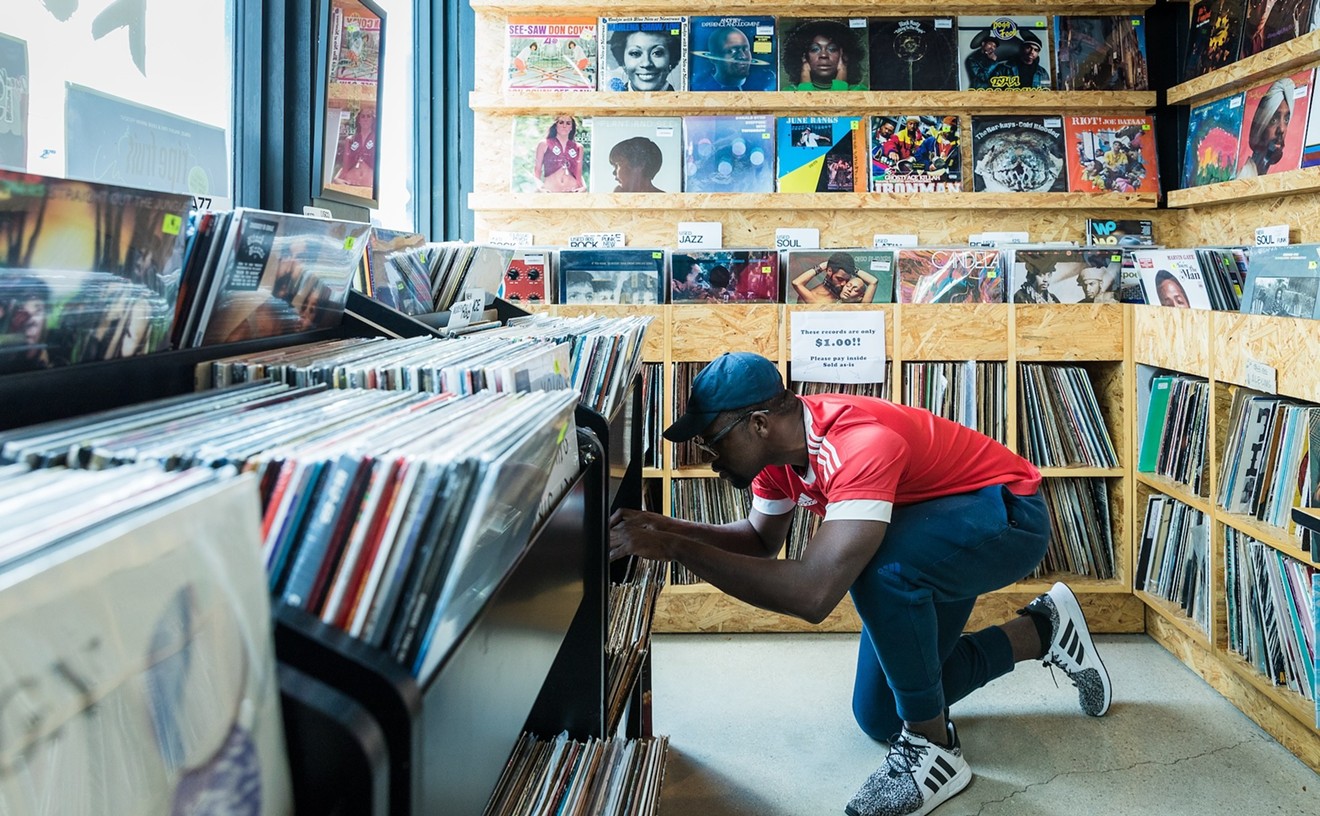If Rob Swift is not a name you instantly recognize, you might remember him as a member of the X-ecutioners, whose critically acclaimed debut X-pressions (Asphodel), was the first-ever full-length album by a DJ crew, or, as they prefer to be called, turntablists. Swift's torrid vinyl psych-outs "Nobody Beats (the Bridge)" and "Make a Little Funky Beat for You" have also gained notice and inspired numerous fellow DJs.
Now Swift is out on his own with a new solo album, The Ablist (Asphodel). After the turntable-only X-pressions, it represents a progression in exploring the turntable's viability as a musical instrument alongside other, more recognized ones. It is also an expression of Swift's desire to bring the turntable to a wider audience and Asphodel's hope to successfully sell DJ records to that same group.
"A lot of labels slept on DJs," Swift says from his home in Queens as he prepares to depart for a European tour. "Turntablists are marketable and can sell records." But in Swift, someone so steeped in the New York underground hip-hop tradition, you sense a certain eagerness to defend himself as a hip-hop artist bucking the two-turntables-and-a-microphone standard. "I'm definitely a hip-hop artist," he says. "Over the last year or so, I see that I have the potential to become a musician -- but all my talents flow from my experience with hip-hop."
Don't be confused. Although Swift's angle on The Ablist is grounded in pure hip-hop, he goes beyond standard beat-juggling to create an enveloping jazz buzz. The album is also packed with conscious MC-ing, courtesy of Gudtyme. "I wanna try to hit people hard in the head, show them that I can scratch, and bring live instruments and vocals into the picture," Swift says of his sound. "In my music I incorporate other things as opposed to just relying on my skills as a turntablist, because live instruments make it feel like music instead of just scratching."
The melding of turntables with live instruments provided by backing band Dujeous? is a novel concept and far removed from the X-ecutioners' brand of pure turntablism. The effort is to be applauded when it works. On tracks like "Dope on Plastic," "What Would You Do," and "Night Time," Swift's incredibly deft scratching and Dujeous?'s nimble backing hint that Swift may be on to something. But the intermingling of turntables (not noted for their subtleties) with musical instruments more capable of subdued lyrical qualities does not always make for good music. "I'm Leaving," despite the turntables, comes across as nothing more than fairly bland R&B.
What really brings the listener into Swift's world and, when it comes down to it, why most will grab the disc, is his faster-than-a-speeding-bullet scratching. Swift's ability to scratch in a call-and-response style has a jazzy feel, and Swift acknowledges Miles Davis and John Coltrane as influences because of the emotion they were able to convey through musical notes. Perhaps Swift foreshadowed his muso leanings on his 1997 mix tape Soulful Fruit, which featured a track called "A Scratch Is a Musical Note."
If you listen closely, especially to the jazz-tinged "All That Scratching Is Making Me Rich," you can hear how Swift hits many of the same notes as the other instruments. It's a battle -- not between opposing DJs, but among the instruments. Furthermore on "Dope on Plastic," Swift refuses to let the listener lie back in the cut: His scratching is just too compelling.
Unfortunately the difference between this album and other hip-hop records by, say, the Beastie Boys and Money Mark, is never as striking as Swift would like. In the end what makes The Ablist a strong album is not the fusion of live instruments with turntables, but Swift's remarkable dexterity on the decks. The masterful scratching sequence on the slow-boiling "This Is Our Day" riddles the dubby bass with some of the most fluid rapid-fire scratching in hip-hop. It's so fast, so seamless, and so smooth, it sounds as if Swift is working with four hands.
Although Swift is aiming to bring his fused sound-and-turntable acrobatics to a larger crowd outside the already down-with-it, he acknowledges a tremendous debt to his hip-hip forefathers. As influences Swift names Theodore, Grandmaster Flash, Grandmixer D.ST, Cash Money, Steve D., and even Herbie Hancock's 1982 single "Rockit." But his most important role model, especially when it comes to production style, is Large Professor. Taking a cue from the fiercely independent Large Professor, Swift produced all but two of the tracks on this album, and the songs are interspersed with snippets of studio banter in which you can hear him directing the musicians.
As for his continuing relationship with the X-ecutioners, Swift says they are still together and working on a new album. "It's dope," he remarks. "They allowed me the freedom to do my own thing."
The Ablist is probably not going to be remembered as the groundbreaking work Swift would like it to be, but it's a solid album. It never really breaks away from standard hip-hop and therefore never fulfills its promise to be something totally new. On the other hand, you also have to ask why anyone with as much skill as Swift would want to change the way the turntable is heard. His prodigious talents are enough to make The Ablist all that -- turntable as instrument or not.










